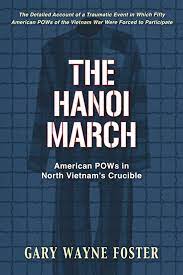Despite their insistence that the complete withdrawal of U.S. troops was the condition for the release of prisoners of war, the Democratic Republic of Vietnam took little action to account for American POWs at the end of the Vietnam War. Almost two decades would pass following the end of the war before significant internal political changes, shifting regional alignments, changing Western interests, Sino-Soviet rapprochement, a nonmilitary settlement of the Cambodian conflict, and the collapse of the Soviet Union would bring Hanoi to the point of recognizing the importance of mending its relationship with the West. From the Paris peace talks to the U.S. government’s decision in 1994 to lift the trade embargo against Vietnam, Hanoi’s policy on American MIAs and POWs is examined, with particular focus on the influence of individual decision-makers on the process and the ways the Vietnamese leadership arrived at their negotiating strategies.

PRISONERS OF HOPE: A GATHERING OF EAGLES
A remarkable book that is well researched and gives the reader a deep sense of the sacrifices of our Vietnam POWs. Post Views: 459







